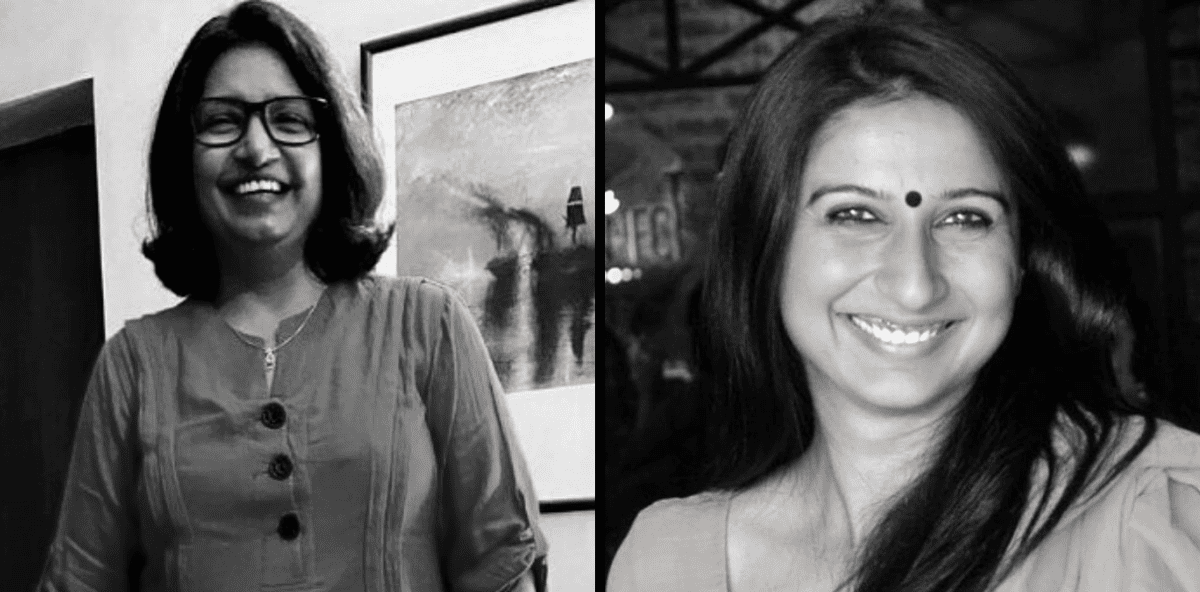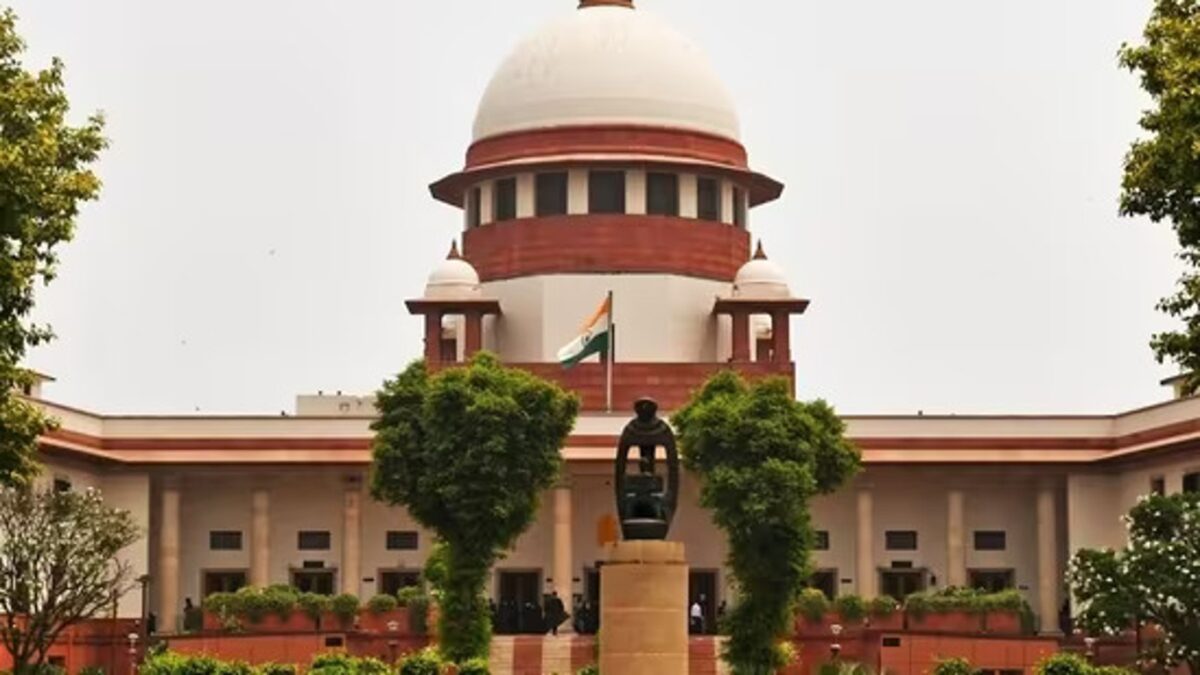Nuclear Policy Expert Raji Rajagopalan On Manels And How To Fix Them

Written by: Rajkanya Mahapatra
Currently the Head of the Nuclear and Space Policy Initiative at the Observer Research Foundation, Rajeswari Pillai Rajagopalan is a foreign policy expert with 20 years of experience. She’s previously worked with the National Security Council Secretariat and the Institute of Defence Studies and Analyses in New Delhi. Rajeswari has authored four books, including Nuclear Security in India, Uncertain Eagle: US Military Strategy In Asia, and more.
In conversation with, Pallavi Pareek, Founder and CEO, Ungender, Rajeswari discusses the deep-rooted problem of manels, what should we do to fix them, insights from her own journey of navigating and growing in a male dominated space, and more.
Pallavi: Today, we’re going to be talking about a topic that has bothered us at Ungender ever since the Covid-19 lockdown started. As everyone started to work-from-home, folks brought their offline conversations (webinars, panel discussions, learning sessions) online. At some point, this issue that we were observing became a problem – the problem of all-male panels. I’d like to share some numbers that we’ve gathered at Ungender in the last six months – in the 95 webinars we took note of, there were a total of 715 men and 23 women. Why do you think it’s important to talk about manels?
Rajeswari: Absolutely, I think this has become a challenge, it’s not just an issue anymore because we do not lack women in any field, whether it is healthcare, infrastructure or urbanization. You’ve so many women working in non traditional security threats and hard security issues, especially younger women. So, why is it that they are not represented? Why is it that they do not have a voice out there? I think this has always been an issue.
Under the lockdown situation, one would think that people would find more flexible arrangements, so as to bring women into these panels, so their voices are heard and their perspectives are out there. But, we’re actually seeing the continuation of the same old trend. This is a reflection of the same sort of blindness towards the bias that has existed in society for a very long time.
I spoke to some of the manel organizers in the last few months, and to many it didn’t even occur that they were doing anything wrong at all. They’re not even conscious of the fact that they don’t have any women on the panel, and there is anything wrong about it. In fact, they said, “No, oh, I didn’t even think about it in those terms. We just wanted foreign policy experts and we just looked at these names and put it together.” That’s it. They’re not even making an effort to go out and find diverse voices, genders and get different kinds of perspectives.
Recently, a TV channel had a discussion on China, and the panel had only men and there was a lot of hue and cry on Twitter. I asked, “Could you not find any woman to be a part of this discussion on China?” The anchor said, “Oh, we tried to bring in some women but there were timezone issues.” I thought that was the most lame excuse, to even suggest that. Some of these men who were part of this panel were not even top experts. You have many women who are much more capable. They have a lot more substantive expertise on the subject but clearly they’re not a part of this internal circle. I think there is a need for us to call out manels and social media platforms are an effective medium. It’s time for us to do that in a sustained fashion.
Rajeswari’s Journey In The Male-Dominated Field Of Security Studies
Pallavi: How has it been for you – navigating a field that’s predominantly dominated by men?
Rajeswari: Yeah, it may be slightly better because when I came to do my MPhil and PhD at JNU, I did see a number of women, both faculty and students. The international relations field, of course, was still dominated by men. There were some role models like Professor Urmila Phadnis and Professor Surjit Mansingh. There was a little bit of comfort seeing those women out there and realizing that it was not going to be a lonely journey. After my MPhil, I joined IDSA (Institute of Defence Studies and Analysis), a Ministry of Defense funded Think Tank, based in Delhi. At IDSA, there were no women at the leadership level but there were a lot of women scholars. So again, that gave me a sense that you have a certain number of peers who are women who have been going through the same set of issues.
I think as you go up, you start recognizing these problems. At least in the earlier days for me, I accepted what we see as a problem today as something that was natural and not as an extension of the patriarchal society and the system that I’d been a part of. Men dominated certain fields, like international relations, space, nuclear, and some of the technology fields.
As one gets older, there’s a tendency in all of us to question male dominance, and ask why is it that women can’t talk or write about these issues. I started questioning this in the middle of my career when I started attending professional meetings.
For instance, when I wanted to make a comment or ask a question to the panel – first, I would note, and then, say. There have been situations when men who make the same point as I did, were quoted and tagged to say, “Oh, Mr. So and So said that,” but what I said was exactly the same thing. Your voice is completely ignored. Initially, I felt irritated when I came out of these meetings and discussions. But I also need to recognize some of the really good mentors that I’ve had who’ve been men, who’ve encouraged me and given me a lot of space and freedom to work on whatever it is that I wanted.
There was General VP Malik. He was the Army Chief during the Kargil War. He was also my boss when I came to ORF. I worked with Brijesh Mishraa who was the National Security Advisor. I worked briefly with him. It was not a day-to-day operation, but the meetings I had with him were fantastic. Dr. Raja Mohan was a big figure in the field of IR and Security studies. The leadership within ORF has been tremendous. The founding director, Chairman RK Mishra. The current chairman, Mr. Sanjay Joshi, Dr. Samir Saran. I think the leadership at ORF has been extremely encouraging. They give you the space for you to choose what you want to do. But despite all of this, I wouldn’t say that it has always been easy.
Why Organisers Need To Do Better
Pallavi: Thank you for sharing, Raji. Every time someone says, “Why are you after men?” It’s about all male panels. Right now, it’s about men, eventually it’s about bringing diversity across the board. When the world is for everyone, why isn’t everyone a part of the discussion? What can organisers as well as individuals participating in these manels do about this problem?
Rajeswari: I think there are important reasons as to why this should change. We’re not looking at manels, or even wanels. People are questioning me on Twitter, they’re saying, “why don’t you go and organise a panel for all women?” That’s not the point. All I’m saying is – we need to have inclusive conversations, we need to have diversity, we need to have a balance on these panels.
When you ignore women in panels or discussions, you’re actually ignoring their entire body of work. I think it’s fairly important you give women that exposure, especially younger women who are entering the field. If you don’t give them that exposure, the opportunity to be part of these conversations, create, and understand from each other, have a shared perspective on issues – it’s a disservice to people. So, that’s one issue.
Second, there’s a need for diverse opinions and perspectives on any issue that you may be discussing. You can’t assume that a set of men have all the answers, whether it is on China, defense planning, nuclear policy or any other issue. On any particular issue, unless, you have age, gender, demography, all of the different aspects represented there, you will have a very one-sided perspective in any discussion.
Today’s webinars and panels are all looking at contemporary policy issues. Why should women not be a part of those conversations? Women represent 50% of the population, why should they not have that voice? It doesn’t matter whether they are able to provide a solution or not. Men, so far, have not provided solutions to a number of different problems.
How To Tackle The Problem Of Manels
Pallavi: Why should we not move on from the problem of manels? What are the implications, you think, if we move on like this? There are so many organisations now, including us, who are curating a list of leaders from different segments. People are nominating not just themselves but folks from other under-represented communities. Why is it important to keep talking about manels?
Rajeswari: Absolutely. We’re all influenced by the environment that we’re in and that obviously influences us at every every step of the way. There are some positive and negative influences that come our way. So, unless you’re able to shape a positive environment for the next generation of people, you’re going to be sustaining this unhealthy practice into the future as well. Manels are a serious enough problem and calling them out in a sustained fashion is what is needed.
One of the first things we need to do is sensitise leadership in institutions. I’m proud of the fact that ORF took a decision many years ago not to do manels. We are also always encouraging younger people to be part of the panels and discussions. I think ORF has been one of the few organisations that has always been welcoming and sensitive to the fact that you need to have diversity of every kind on the panels otherwise you are going to have a very skewed discussion on any subject.
Like I said, it’s (calling out manels) for the future generations because the environment that we are in is not conducive for young women who are coming into the IR and security field.
I see a much bigger number than when I joined but unless those women find a conducive atmosphere where they are able to talk, publish, write, speak at conferences, and have that interaction with others in a formal setting, they are not going to be able to grow well in this field. That’s a disservice again, being done to the next generation. That in itself should be a good enough reason for us to continue this calling out manels.
So when you said you were putting a list together. From what I can recall, two young professionals, Khushi Singh Rathore and Rohan Mukherjee actually put together a list of female experts in IR and security studies and that list runs up to about 400 names. There is no dearth of women in any field. You need to give them a platform and exposure.
Pallavi: Do you think organisers follow some guidelines before they organise a panel? Shouldn’t it start with figuring out how many people are needed on a panel and then what are the different perspectives that need to be represented and included in that conversation?
Rajeswari: I think most panels when they’re getting organised, they (men) will start with their network. These are mostly organised by men at the senior level, they know their peers, and they know their friends. So, your peers are also mostly men, you don’t interact, go out, make that effort to interact and expand your peer group. So in a sense, your peers are again men, you call them and they come.
Wouldn’t it be better if the first step is to analyse and see how many people and what kind of representations are needed? They’re (manel organisers) not asking themselves these questions.
The Missing Women And Manels
Pallavi: I can tell you from the data we’ve gathered, repeat offenders like TiE and CII feature some people again and again. Do you think credibility checks are done? How come the same set of people know everything or are able to speak on just about any topic?
Rajeswari: Absolutely. You said it. Many times, when you’re looking at the names of possible women panellists – often the following comments come from men – “well, I think she’s just about okay”, “she’s kind of below average,” “she’s not that great,” “she’s not this…not that.” But when it comes to men, we don’t even discuss any criteria, whether they’re good, bad or ugly – the question does not arise at all. We need to get more sensitive about the need for inclusion.
It’s important to target the next generation. I’ll give you two instances: in one case when I was talking to some of the organisers who I had called out on Twitter – with great difficulty this one woman wrote back to me saying, “We have so many women behind the team working on this.” I said, “You made the point. Why are those women behind the scene working on it? And these are professionals, working on space issues, why are they not part of the discussion? Why are they behind the scenes helping with things?” The second instance concerned a repeat offender. When I called out the men, they came out and said, “we had two women last week.” This response was given by younger people. I was actually shocked to see that even the younger generation hasn’t recognised the problems associated with these skewed discussions.
Pallavi: I know a lot of women are constantly questioned if they’re qualified to be in a certain place or not. Such questions leave a deep psychological impact. How do you think that can be addressed?
Rajeswari: So, as a woman, I think we always tend to question ourselves, doubt our capabilities in a very, very critical and harsh fashion passion. I think we need to get over that. I would say, whatever path you choose, you need to be very clear about why you are choosing that path in your career as it will stay with you for the next 30 years of your life. You need to be passionate about what you do. There’s no shortcut to hard work and if you have the courage and conviction, plus the hard work, it helps you in building that confidence. It’s very important because people will always try and pull you down.
There have been so many instances where people have put me into clichéd boxes and thought I will not be working on a certain subject as I’m not capable of working on hard military security issues. The fact is that you need to develop that self confidence and that’ll come from conviction. You will also need to have a support group to lean on because the field can get lonely from time to time. So having that support group in your line of work is absolutely essential. Finding a good mentor can be very helpful, someone who can give you that sense of self-confidence.
Video Highlights
04:56 – Why We Need To Talk About Manels
10:27 – Navigating The Male-Dominated Field Of IR
20:03 – Why Organisers Need To Do Better
28:30 – Why Building An Inclusive Future Is Important
39:26 – Criticism Only For Women?
48:43 – Message For Women
Ungender Insights is the product of our learning from advisory work at Ungender. Our team specializes in advising workplaces on workplace diversity and inclusion. Write to us at contact@ungender.in to understand how we can partner with your organization to build a more inclusive workplace.
Read our insights about diversity, legal updates and industry knowledge on workplace inclusion at Ungender Insights. Visit our Blog.
Sign up to stay up-to-date with our free e-mail newsletter.
The above insights are a product of our learning from our advisory work at Ungender. Our Team specialises in advising workplaces on gender centric laws.
or email us at contact@ungender.in




